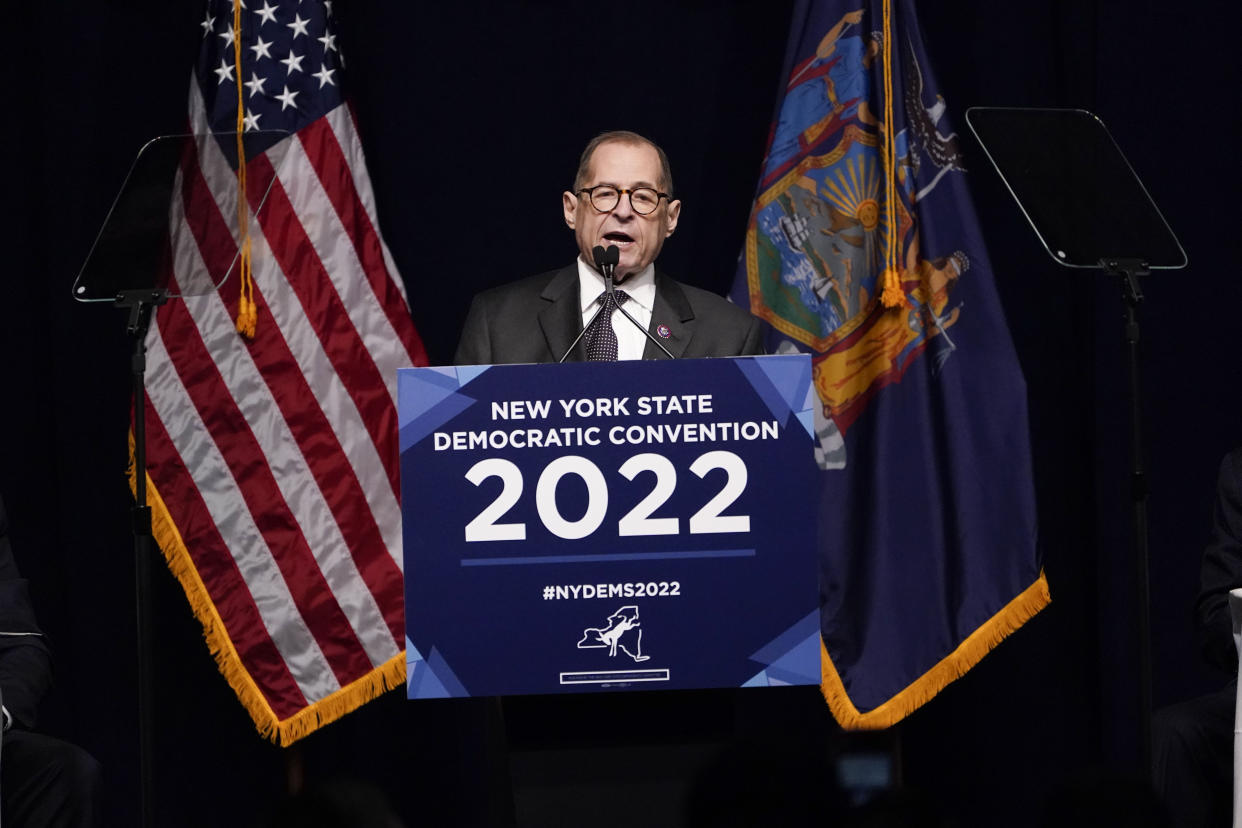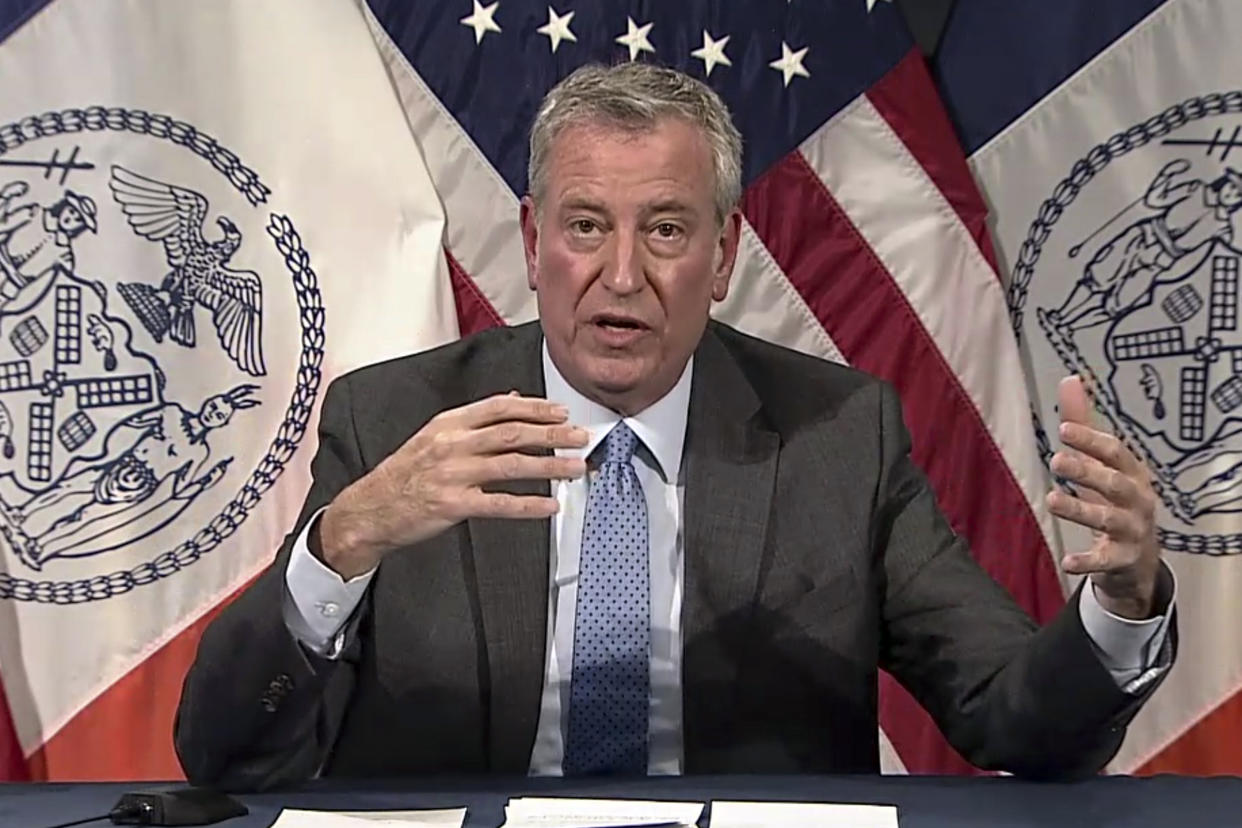De Blasio is back: 'I feel a fire,' former New York mayor says, announcing run for Congress
Bill de Blasio, who served as New York City’s mayor for two terms, briefly ran for president in 2019. Later he considered running for governor, then for a congressional district representing Brooklyn and Staten Island. Now he says he will seek the House seat about to be vacated by Rep. Jerry Nadler, a Democratic stalwart from the Upper West Side.
The 61-year-old de Blasio made the announcement Friday in an MSNBC appearance after days of speculation about the political future of a polarizing progressive who has never attained the national attention he has long sought. His restlessness all but assured an eventual return to electoral politics.
“I’ll tell you, I feel a fire,” he said, touting a mayoral record that included free preschool for all children in New York City. “Over these months, watching what’s happening in this country, my fire is greater than ever to get in and help people.”
De Blasio will be running for the 10th District, which includes lower Manhattan and parts of Brooklyn. A complex judicial redrawing of congressional district lines has resulted in a game of political musical chairs, with Nadler opting to run in a new district against Rep. Carolyn Maloney, a fellow old-guard Democrat.

Eventual victory by a Democrat in the 10th District is all but assured, given the liberal-to-progressive constituency there. De Blasio is the highest-profile candidate in the race so far. If he were to win, he'd join a New York City congressional delegation that includes a lone Republican: Nicole Malliotakis of Staten Island, who is fighting off a challenge from Max Rose, a Democrat who previously held the seat.
De Blasio was criticized for a slow response to the coronavirus pandemic, including his habit of commuting to Brooklyn for walks in Prospect Park at a time when the city was under lockdown. But he was also one of the first Democratic mayors to push for a return to in-person schooling in the fall of 2020.
The racial justice protests of that summer were another signal moment in the de Blasio administration. Though he had come into office vowing to reform the New York City Police Department, which had long been criticized for excessive and prejudicial practices in nonwhite neighborhoods, a killing of two officers early in his first term left him badly rattled and hesitant.
By the time protests took to the streets in the spring and summer of 2020, progressives had become disenchanted with his unwillingness to take on the powerful police union that continued to set the city’s law enforcement agenda. After an NYPD van was seen driving into protesters in late May of that year, de Blasio defended the officers involved.

“I’m not going to blame officers who were trying to deal with an absolutely impossible situation,” he said, earning a rebuke from potential future congressional colleague Rep. Alexandria Ocasio-Cortez.
New Yorkers tend to tire of their mayors, and de Blasio was no exception to that trend. The former mayor has watched as his successor, the ebullient Eric Adams, has touted himself as President Biden’s ally and counterpart — and, perhaps, eventual successor.
If he wins, de Blasio would follow in the footsteps of Ed Koch and John Lindsay, fellow mayors who also served in Congress, though in both cases they did so before taking the helm at City Hall.
